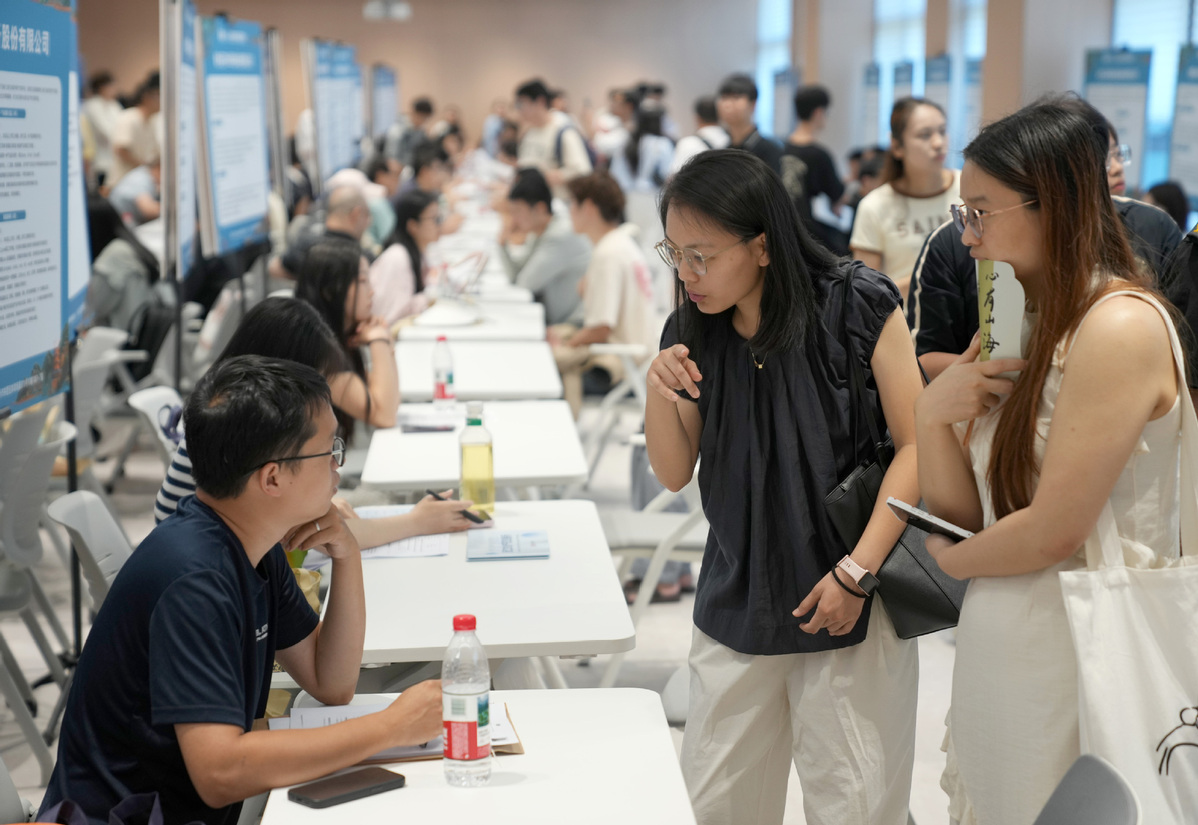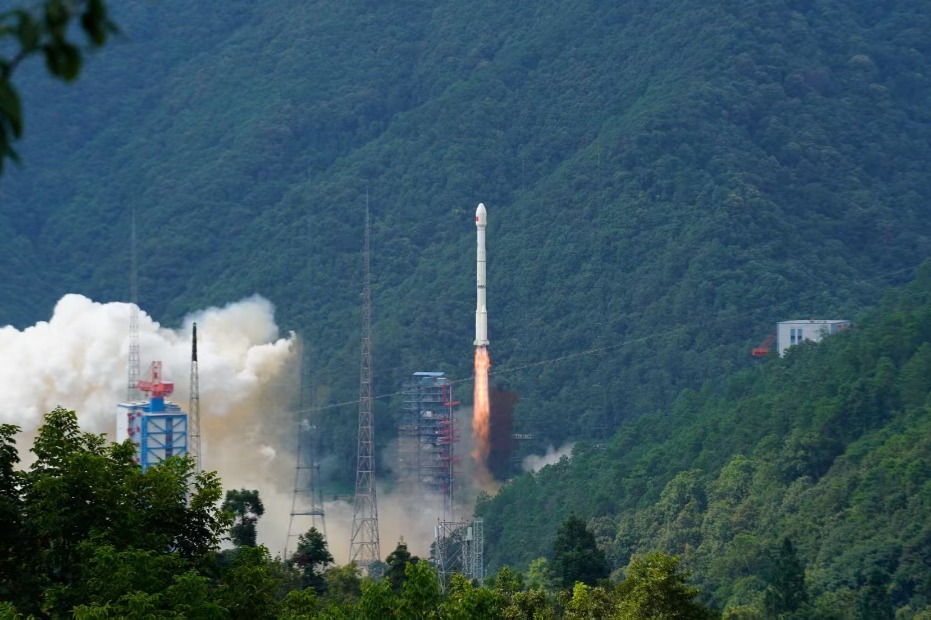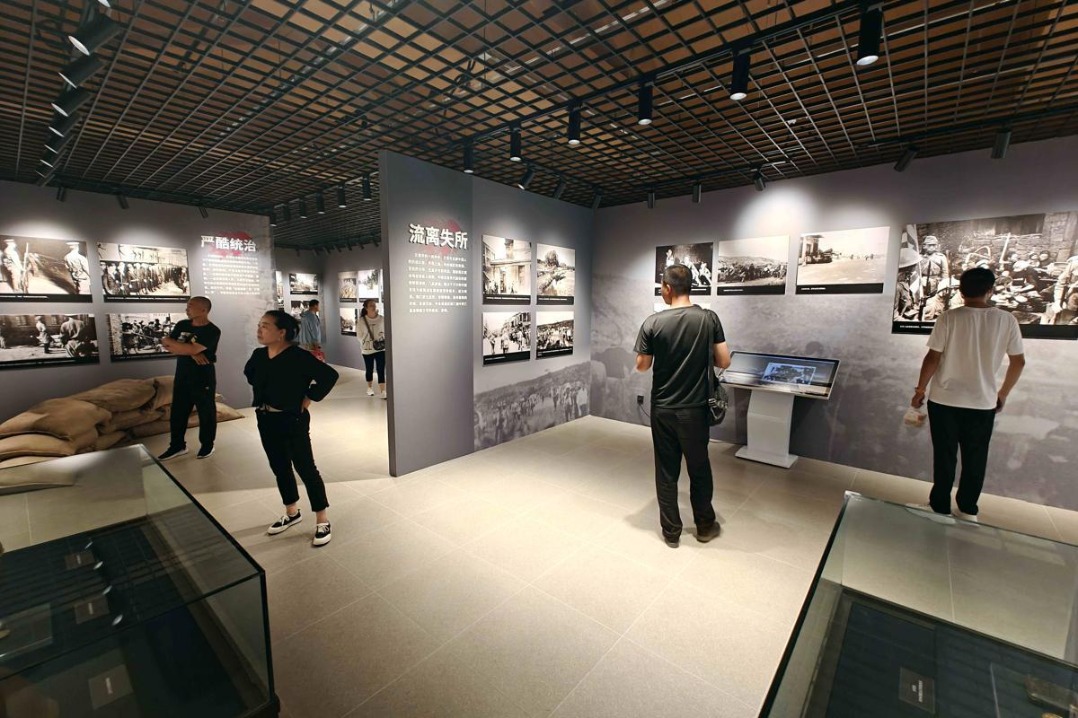New 1st-tier cities gain ground in talent battle


While China's capital city of Beijing and major cities like Shanghai remain top destinations for young job seekers, new first-tier cities, especially in East China's Yangtze River Delta, are gaining ground in the battle for talent, as they offer robust manufacturing and innovation capabilities, flexible talent programs and promising career prospects, according to a recent report.
The report, by Beijing-based education consultancy MyCOS, indicated that Beijing and Shanghai have been the two most attractive cities for undergraduates over the past three years.
It noted that, from 2022 to 2024, 82 percent of surveyed undergraduates who found jobs in Beijing came from outside the city. They were attracted by Beijing's strong economy, abundant job opportunities and higher potential for well-paid positions. In Shanghai, the figure was 75 percent.
However, since salary is no longer the sole factor in a city's appeal to young job seekers, smaller cities are using flexible talent programs, lower living costs, improved quality of life, and strong economies to attract talent, according to MyCOS.
In Hangzhou, the capital of Zhejiang province, 67 percent of surveyed undergraduates who found jobs from 2022 to 2024 were from outside the city, up from 65 percent from 2018 to 2020. Other cities in the Yangtze River Delta, including Suzhou and Nanjing in Jiangsu province and Ningbo in Zhejiang, have also seen an increase in out-of-town undergraduates taking local jobs, thanks to favorable talent policies and improved public services.
According to the Nanjing-based Yangtze Evening Post, undergraduates looking for jobs in Nanjing can receive free accommodation for up to 14 days. They can also apply for a 2,000 yuan ($280) subsidy and secure a loan of up to 500,000 yuan for their first entrepreneurial venture in the city.
Li Zhiyuan, a 28-year-old engineer at a small artificial intelligence tech company in Hangzhou, told China Daily: "My parents thought I was crazy when I decided to take a job here since I've never lived or studied in the city before."
After earning his bachelor's degree in Beijing and his master's in Shanghai, Li chose Hangzhou because of its favorable talent programs, digital economy strength and slower work pace.
"The city grants generous one-time subsidies of 10,000 yuan ($1,400) to undergraduates, 30,000 yuan to postgraduates, and 100,000 yuan to doctoral graduates. The working and living environment is good, and I think I can get myself good prospects here," he said.
Li Chang'an, a professor at the Academy of China Open Economy Studies at the University of International Business and Economics in Beijing, noted the growing preference among young people for smaller cities.
"China has an increasing number of college graduates each year, leading to growing employment pressure and intensified competition," the professor said. "More young people are seeking new opportunities in new first-tier and second-tier cities, or even counties, to ease the pressure."
He added that supportive government policies in smaller cities have helped to attract young talent. "These new first-tier or smaller cities have a better living environment with lower living costs and more opportunities for entrepreneurship, but it is still important for them to figure out ways to retain talent," he said.
chengsi@chinadaily.com.cn




































